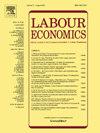通过社区-学校参与改善儿童的基础学习:来自印度农村的实验证据
IF 2.2
2区 经济学
Q2 ECONOMICS
引用次数: 0
摘要
由于小学几乎实现了全民入学,政策重点已转向提高学习成绩。做到这一点的一个重要方法是加强问责制,特别是在公共教育提供方面。在这种情况下,我们研究了加强问责制的两种不同策略的有效性,一种策略只涉及社区,另一种策略则在学校和社区之间建立合作关系。我们在印度的 400 个村庄实施了一项随机对照试验,结果发现(i) 两种干预措施都显著提高了儿童的基础识字和算术能力,(ii) 我们观察到两种干预措施的效果差异有限,(iii) 社区-学校干预措施在家长报告到访学校的情况下效果显著提高,这强调了家长-教师互动的重要作用以及他们在塑造儿童学习成果方面的共同责任。在机制方面,我们发现直接的学习投入在调解两种干预措施的观察效果方面发挥了重要作用。此外,家长和教师的参与以及儿童在校外的学习习惯也是社区-学校干预措施产生效果的潜在重要渠道。本文章由计算机程序翻译,如有差异,请以英文原文为准。
Improving children's foundational learning through community-school participation: Experimental evidence from rural India
Due to almost-universal enrolment in primary schools, policy focus has shifted towards improving learning outcomes. One important way of doing this is to enhance accountability, especially in the case of public provision of education. In this context, we examine the effectiveness of two different strategies of increasing accountability – one involving only the community, and the other which builds collaboration between the schools and the community. We implement a randomized controlled trial in 400 villages in India, and find: (i) both interventions led to a significant enhancement in children's foundational literacy and numeracy skills, (ii) we observed limited differences between the impacts of the two interventions, and (iii) the community-school intervention exhibited significantly greater effects when parents reported visiting the school, underscoring the vital role of parent-teacher interactions and their shared responsibility in shaping children's learning outcomes. In terms of mechanism, we find that direct learning inputs play a major role in mediating the observed effects of both interventions. Additionally, parent-teacher engagement and children's studying habits outside of the school are potential important channels through which the observed effects operate in the community-school intervention.
求助全文
通过发布文献求助,成功后即可免费获取论文全文。
去求助
来源期刊

Labour Economics
ECONOMICS-
CiteScore
3.60
自引率
8.30%
发文量
142
期刊介绍:
Labour Economics is devoted to publishing research in the field of labour economics both on the microeconomic and on the macroeconomic level, in a balanced mix of theory, empirical testing and policy applications. It gives due recognition to analysis and explanation of institutional arrangements of national labour markets and the impact of these institutions on labour market outcomes.
 求助内容:
求助内容: 应助结果提醒方式:
应助结果提醒方式:


